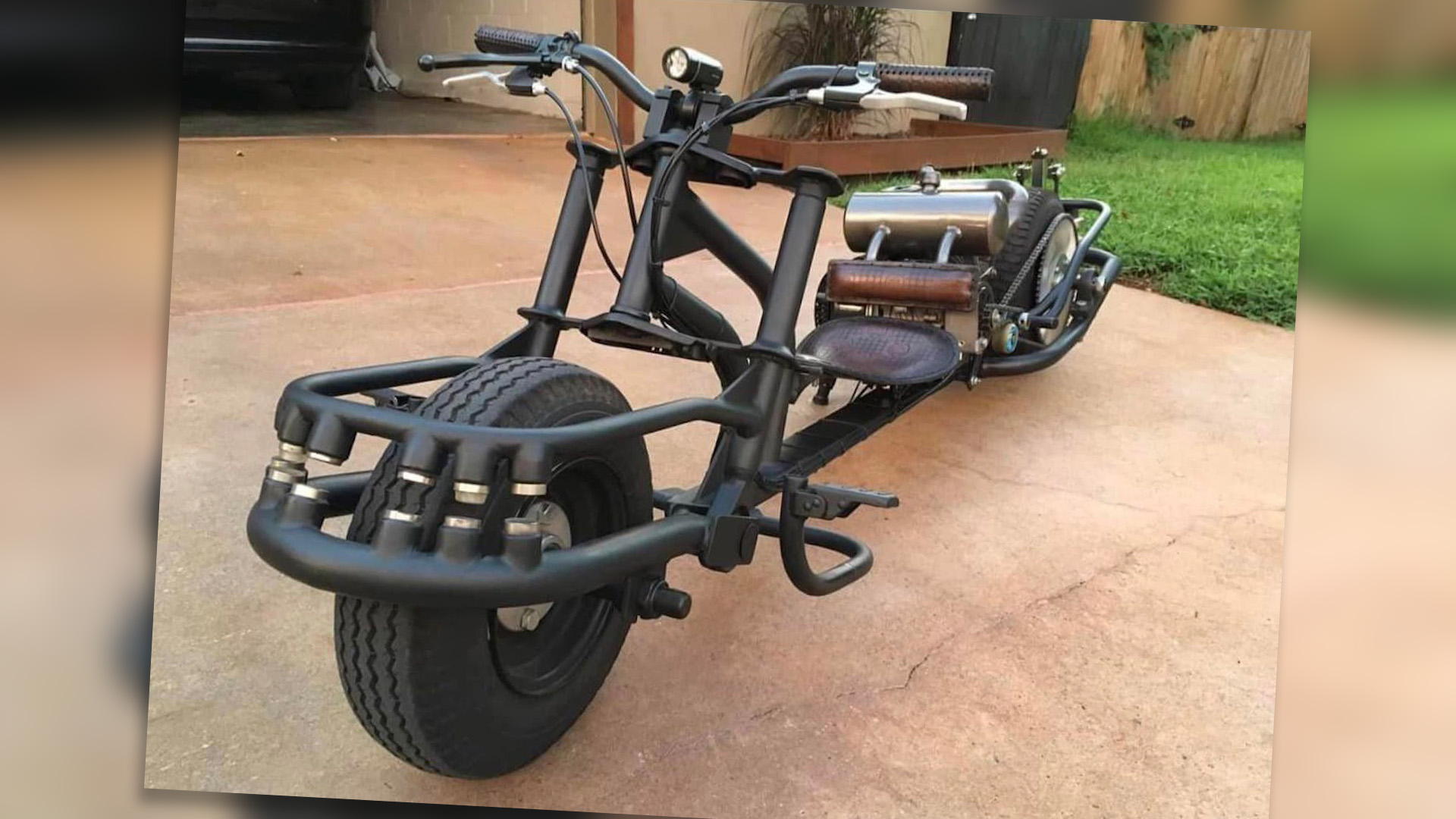

Suspension: A bendy or squishy thing that absorbs bumps so we keep control of our vehicles. In the case of a custom motorcycle for sale on Facebook though, there’s no bend or squish. Just… woowoowoowoo. That’s the noise magnets make in my head. It has magnets. The suspension is made of magnets. Someone call Shaggy 2 Dope.
Listed for sale in The REAL Pinellas County Buy & Sell in Florida, the bike is clearly made from a combination of off-the-shelf parts and a custom tube frame. Its engine is some kind of one-cylinder Briggs & Stratton motor (the exact model and output are hard to identify), while the wheels and tires seem to be Harbor Freight-spec. It’s a pretty basic homebrew bike until you get to what’s on the end of its swingarms.

Affixed to the end of each suspension arm are sets of large magnets: six up front, two in back. They’re presumably mounted with their polarity in opposite directions to repel each other. They’re likely not the cheapest way to smooth out your ride, but the result according to the bike’s builder, Zane King, is that it “floats like a cloud.”
He believes it’s “the only magnetic suspension vehicle in the world,” though that depends on how you define such a thing. General Motors’ MagneRide uses magnetic principles in a shock absorber, though not in the same way this bike does. Maglev trains also float using magnetic repulsion, though they don’t make contact with the ground, so you can’t really call it suspension. It’s also hard to imagine that automakers haven’t fiddled with magnetic suspension behind the scenes, but have just never mass-produced it due to cost.


Though not specified in the screen capture of the listing, cost may also be a hurdle for any interested buyer. That’s because the seller says it “cost me close to what I’m asking to make it.” Unfortunately for them, passion projects rarely pay their own way, never mind turn a profit. But they’re free to ask what they want—they may just end up compromising in time.
Got a tip or question for the author? You can reach them here: james@thedrive.com